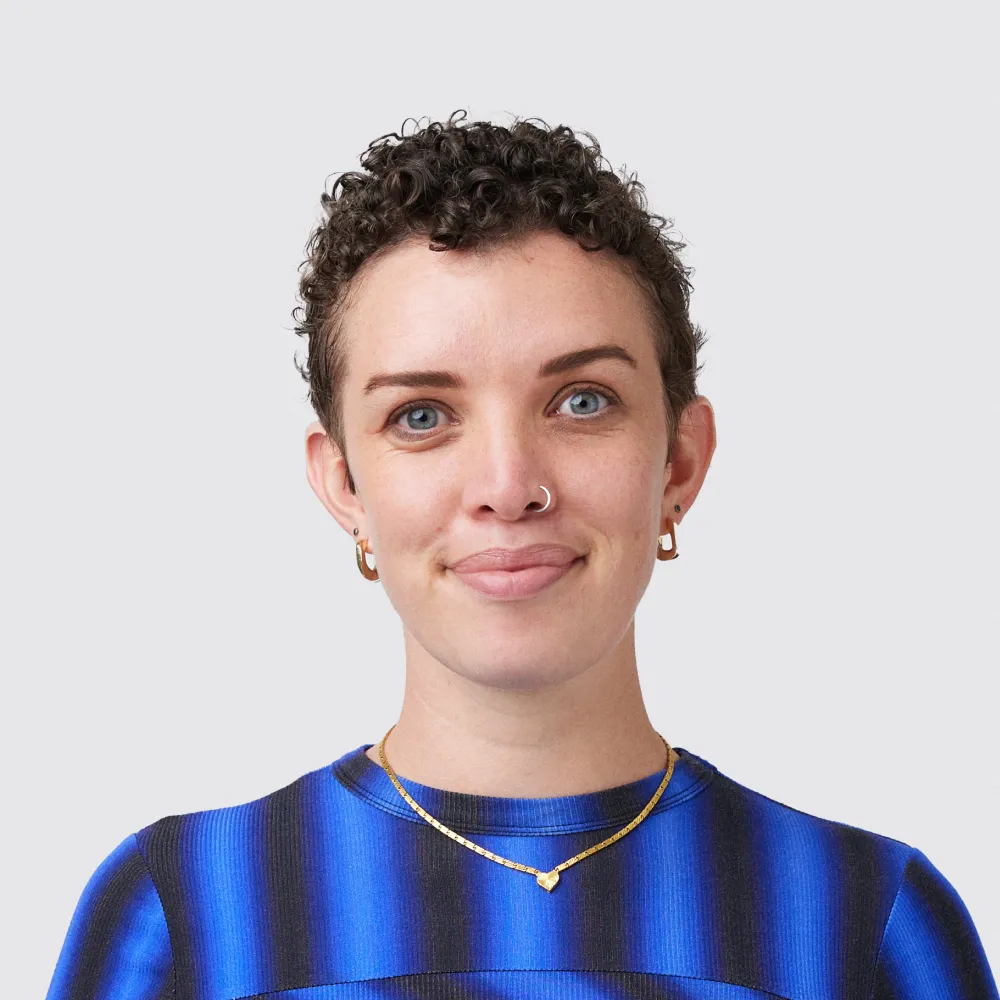Loren O’Keeffe’s brother, Dan, went missing in 2011. In the turbulent period that followed, Loren took her direct experience with ambiguous loss, founded the Missing Persons Advocacy Network and launched the Missing Persons Guide .
The guide has been accessed by over 70,000 people from 190 odd countries around the world. We took a moment to chat with Loren about the journey of MPAN and how important its existence is for the families and loved ones of the 100 Australians that are reported missing every day.

In conversation
Damon O’Sullivan, CEO at Today
Kate Bensen, Storyteller at Today
Loren O’Keeffe, Founder and CEO at Missing Persons Advocacy Network
Where and how did MPAN start? It's an important, big question.
It is, and I like that it's not the why. Where and how is good.
Where, was in my apartment in Richmond where I had been running, for all intents and purposes, a marketing campaign for my brother, Dan, who had been missing for about a year by that point.
Throughout that year, the campaign had attracted so much attention that there were dozens of other families that were making contact with me and asking for advice. That prompted me to write down all of my hot tips in a very messy Word document that I would email out to all of these families—which is not very practical, or efficient.
I said to an Airbnb guest of mine, “I really want to turn this Word document into a website.” But I had effectively been unemployed for 12 months because I was searching for Dan 24/7—I never went back to work. I didn't have any money, and I knew websites cost money. She said, “You should apply for this grant through Vodafone. It's called The World of Difference.” I thought, “Okay. This all sounds great.” I looked it up, and the first criteria to be eligible was that you had to be a registered Australian charity with DGR (deductible gift recipient) status, which at that stage I had no idea about.
I had two weeks to apply for the grant, and I thought, “You know what? There is no organisation or charity in Australia that's supporting this community of people that are affected by having a loved one disappear.”
I worked like a maniac in those two weeks. I registered the charity, we got the DGR status and was eligible for this grant up against 400 or 500 applicants I think. I was one of four successful recipients, which is insane because I didn't have a business plan, I didn't have a logo, I didn't have any of those pretty important details.
That's how it began! I never intended on starting a charity. I just wanted to create the Missing Persons Guide website, and it all just kinda went from there.
I never intended on starting a charity. I just wanted to create the Missing Persons Guide website, and it all just kinda went from there.
Loren O’Keeffe

Tap to explore content
I remember when we met you the first time, back in the beginning, we met some of the families as well. It would be good to reflect on what your experience was and what you started to get asked when people were reaching out to you. What were some of the things that you were trying to support people through?
I couldn't understand how in that time—it would have been 2013—that when there was a YouTube tutorial for pretty much everything; boiling an egg, putting on mascara, tying a shoelace; there was no guidance for what to do when you find yourself in a situation where time is of the essence.
You're never prepared to find yourself in that position. People going missing, was to me— at the time when Dan disappeared—something that happened in movies. It wasn't a real situation. As it became more real, and time went on, and I realised that every single day in Australia over 100 people are reported missing, it didn't make sense that when you ask the police what to do, they say, “I don't know. Whatever you feel like you need to do.”
There was nothing online to give families in that situation any guidance. Time is of the essence when someone disappears. You need to be super efficient. I'm all about efficiency, always have been. For me, it just was ludicrous that there wasn't anything for those people that needed to feel like they were doing something. Even if those practical tasks didn't lead to their loved one being found—which certainly didn't happen in our case—at least you feel as if you're accomplishing something by going through a checklist and saying, “Yep. I've done that. I can sleep a little bit easier tonight knowing that I might be one step closer to a resolution.”
It was really powerful to put the call out to five or six other families to come into Today and be in a room to brainstorm together. I had been very much in my own bubble for those 12 months, and had interactions with these people over email or phone, but never in person until that point.
Every case is very different, so I think it was really validating for those other families to be invited into a space where their lived experience—in what is very unique and a pretty niche realm—could be heard by professionals that wanted to help all of us collectively produce something that thousands of people all around the world could access. It was really special. They still talk to me about it now, years on. It was really quite a milestone for us to even engage with you guys, and make this idea in my head for a website a reality.
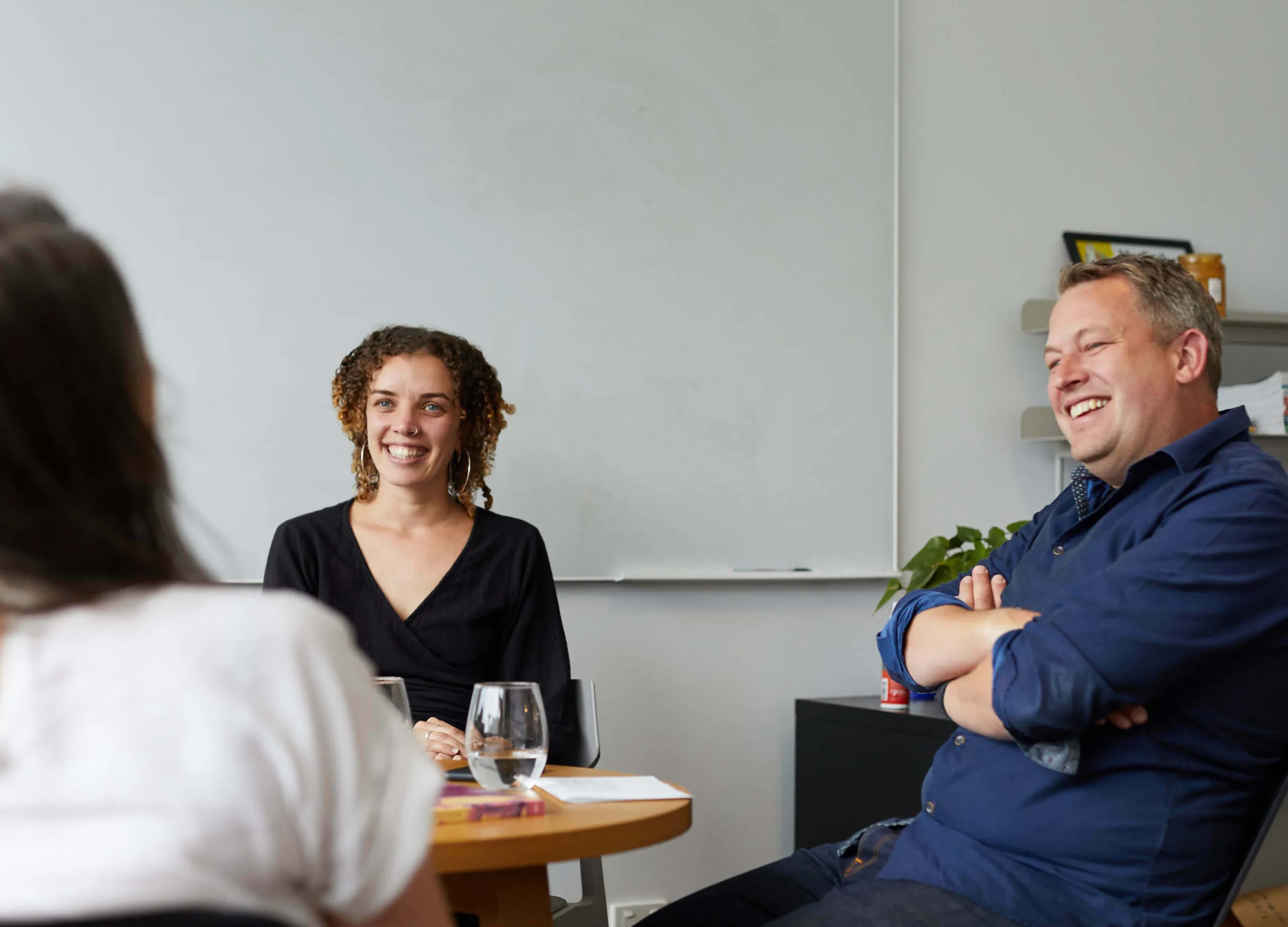
I think what struck me at the time—which I didn't really ever think about or understand before that point—is that it's nobody's job to look for a missing person, that it's not a police matter because effectively, nothing has played out yet. Is that still the case?
Very much so. I mean, it is so complicated because it's ambiguous in its nature. You don't know what the cause of someone going missing is. We can all speculate on the circumstances and from our knowledge of the person, but generally, unless it's very clearly deemed suspicious by police and they can investigate it, there is nowhere else to turn. For families, even knowing your loved one as well as you do, still, the situation doesn't make sense.
Now people can turn to MPAN for guidance.
It's not something that you can logically understand and think, “All right. Well, then this is the next step.” It's absolute chaos and there was a lack of support.
Because you do look to the police, assuming that it is a police issue. In Australia we have a very close association of Crime Stoppers and police with missing persons. Society assumes, “Ah, it's a police thing. Police look for them.” They don't. They simply don’t have the resources.
Out of over 100 Australians that go missing every day, only about 1 to 2% of those cases are deemed suspicious, and they're the ones that the police prioritise. The families of the other 98 to 99% have nowhere to go. There’s no search teams, no helicopters or any of those things that movies and TV shows lead you to expect.
When it happens, on the first or second day the police come and get a photo, and you say, “Can you door knock? Can you help us?” They can't and it's really, really disheartening. That kind of sets the tone, generally, with relationships between police and the families of missing people.
I can understand why it's not their job. Unless it's a crime, it's not their job. However, we all expect them to do something because of those well-established associations that we have in Australia. That’s why this whole issue needs to be reframed.
What does MPAN do in terms of improving the experience?
I think the fact that we exist is a really good start. Honestly, the first step in coping with anything that is unique and complex is, I think, knowing that you aren’t alone.
We work to make the issue visible in a way that dignifies the person through different creative campaigns; humanising people beyond those vital stats that a poster reduces them to.
The very fact that we exist and that we can be seen and accessed in a host of different ways now, I think it means more to families than I'll ever understand.
Having someone with lived experience at the helm means that we are making this issue visible not just for the people who are missing, but for the families and networks around that person. Research shows that when one person disappears, at least 12 other people are directly affected.
That's a huge number. That's like 500,000 Australians every year directly affected by this that have never had a platform, have never had anyone say, “We see you. We feel you. We hear you. We're going to represent you.” That's happening now through MPAN. We're doing something that's new and necessary, and I think that's how we improve the experience.
I would have loved for something like MPAN to exist when Dan went missing. It’s such an isolating experience.
I can imagine that when you're in that state of panic, and loss, and worry; having direction from someone who is experienced, but isn’t in the same heightened state, would be calming, as opposed to the tone of an official police directive.
Absolutely. Having instant credibility with families because they know that you understand them makes a world of difference. In the UK, they've got an organisation that has a great relationship with their police over there. They do a really good job of it. But here, there is a real disconnect with the police missing persons units that are typically, within homicide. Again, that's, thankfully, a very small percentage of cases. So all those non-suspicious cases are generally outside their remit.
It feels like there really is a void there that people need to navigate. MPAN being there to ensure no one else has to experience that void and feel alone in the process is a very powerful thing, especially being led by someone who has lived through the experience themselves. How old were you when you started MPAN?
I was in my mid-20s when Dan disappeared.
What did that feel like for you? Did you feel young? Was it something that you felt was relevant?
No, none of this was conscious really. I was frantic for the five years that he was missing, especially in those first few years. None of it was planned. I never really had a chance to step back and see the scale of MPAN. I knew we had an unprecedented social media following, and that there was a lot of momentum that started to flow into traditional media as well.
There was a lot happening all of the time, and I was just ‘Dan's sister’ for those years. It really altered my identity. Even after I founded MPAN, I was still just ‘Dan's sister who was now doing this side project’. It's only been more recently, in the last year or so, that that term ‘leader’ has been thrown in my direction, which is very strange for me.
But I think because it is such a niche realm, and there is no one else really in this space; certainly not in recent times, with the kind of reach that we've had. There was a void, and I’ve found myself trying to fill that as much as I can. Because someone needs to. I know I wouldn't feel comfortable walking away from this. I think a lot of people assumed that I would after Dan was found, but there's too much work to be done.
I don't know if I was particularly young, but I felt capable. I was very fortunate to have even been in a position in my mid-20s where I could drop everything, make this my sole priority, and keep running with it. Because, obviously, most families don't get that chance.
I, therefore, felt responsible to transfer that momentum to the bigger picture so that every family felt that they had the kind of support that we had, the kinds of pro bono partnerships that we had with strategic communication agencies and advertising agencies, and all that stuff that families need. They shouldn't have to reinvent the wheel every single time.
I kind of fell into it, and it feels right. I feel like I have a purpose, and that my brother has a legacy. He lives on in this work, and that's really important to me and my family. Again, I feel that that is very much a privilege.
I know I wouldn't feel comfortable walking away from this. I think a lot of people assumed that I would after Dan was found, but there's too much work to be done.
Loren O’Keeffe
I think it's a good type of leadership where you turn around and suddenly people are following you. But then, you still have to make a conscious decision, “Yes. I'm going to do it. I'm going to lead.” There's a turning point where you say, “It needs leadership, and I'm going to do it.”
In the last couple of years, when I’ve been invited into spaces as a leader, my first response is, “What do you mean? I'm just a sister.” Imposter syndrome alert! Thinking, “Why am I here? How am I being considered an expert on the topic, or an authority on this issue?” But I'm slowly becoming more and more comfortable with that.
Again, because someone needs to do it. When I get invited to these opportunities and I have to represent this community, it's daunting. But I’ve been in my discomfort zone for eight and a half years. None of any of this has felt like, “Oh yeah, cool. Easy.”
It's been exhausting, but the more you get used to anything, the easier it becomes. So here I am, as a ‘young’ ‘leader’. Ha!
That's a good way to be. I remember hearing Kon from the Asylum Seeker Resource Centre who really doesn’t enjoy leadership, , "This is not much fun but someone needs to do it, and I'm going to do it.” It is that sense of service rather than anything else, which I think is a good form of leadership. It's the right motivation.
Yeah, that resonates.
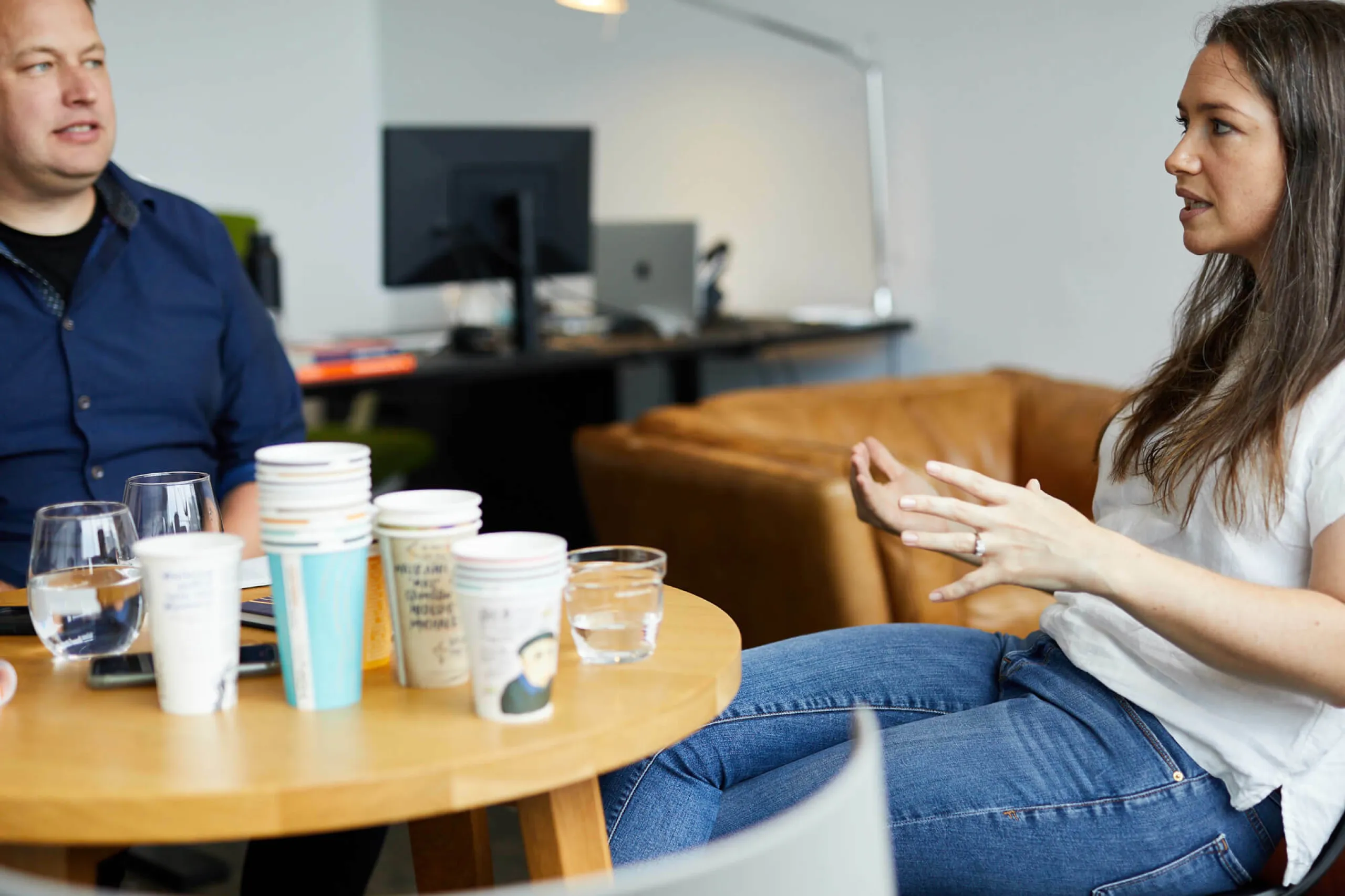
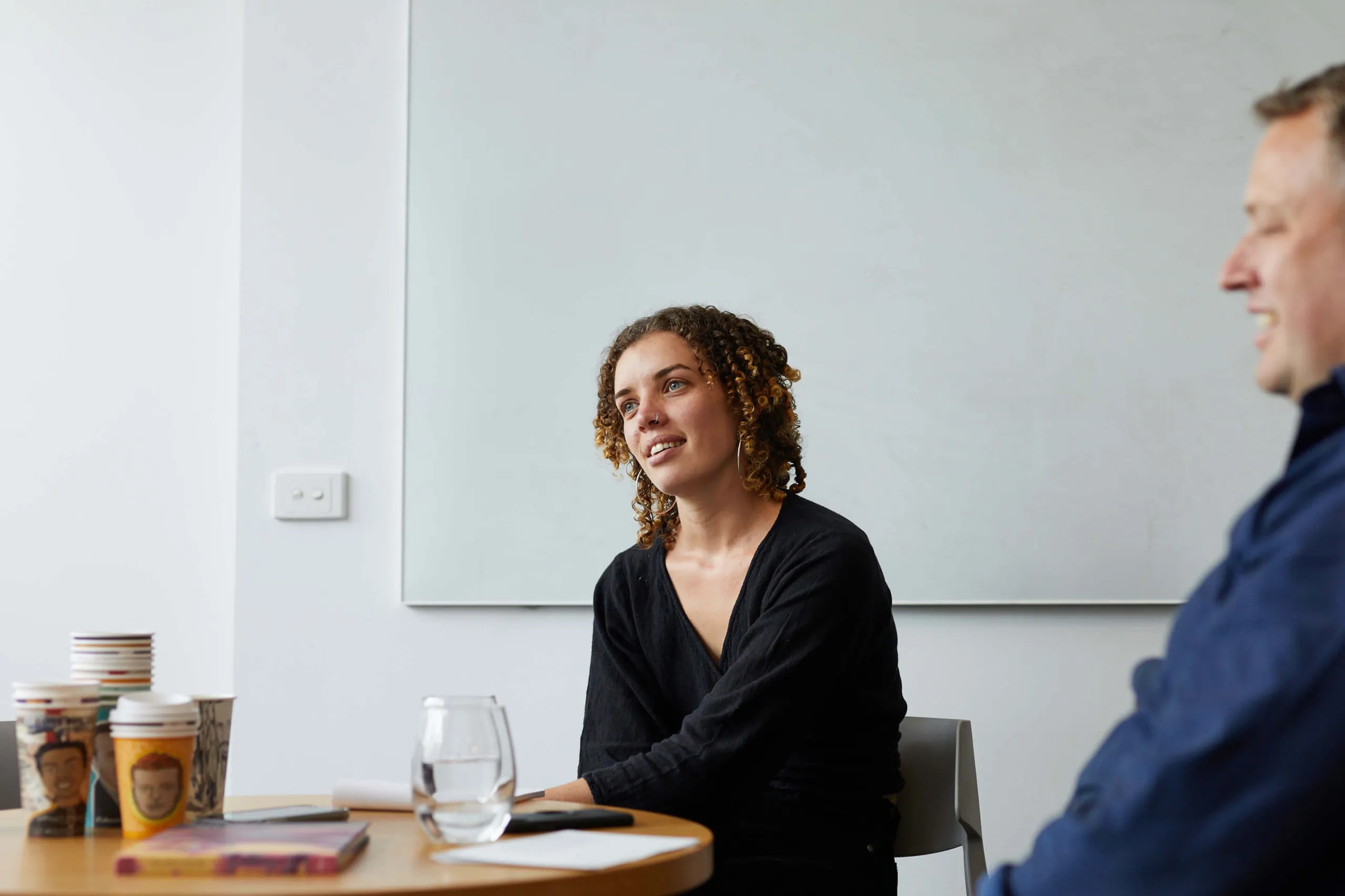
From that first day in your Richmond apartment to now, are there any particular points of evolution that you can reflect on where you feel like MPAN has grown significantly?
There have been so many things that have happened that I thought would take longer. The biggest thing for me from the very beginning was figuring out how the hell we were going to keep getting funded. Because the first funding I ever went for, I got, which really lulled me into a false sense of security, let me tell you.
I just apply for the grant. I get the money. I do the work. That's how it happens.
It doesn't happen that way.
It was about six years between that first grant and then the most recent one that we got. And that most recent one, it's not the 85 grand that the first one was.
I think with the Vodafone grant it was different because we had so much public support. We had a profile, traditional media, and a big social media following, and that certainly aided that grant success. Then when it came to traditional means of funding, we didn't fit into any of the categories. We're not arts and humanities, we're not an Indigenous organisation, we're not disadvantaged youth, we're none of these things. People think that this is a police issue, and it's not. It’s not something that initially appeals to donors, for example.
So I knew from early on that it was going to take me a long time to really challenge society's perception of this issue and recognise that this is a community issue. It's a public health issue far more than it is a criminal police issue; based on the fact that 85% of people who go missing have a mental health condition. The impact on those who are left behind is profound. Psychologists all around the world recognise that ambiguous loss is the most traumatic and unmanageable form of grief that there is. So this is very much a health issue on both sides.
MPAN is really trying to change the way that Australians view this topic and are shifting perception through creative and innovative campaigns that we've been running. We want to soften the issue and make it a lot less confronting than what traditional missing persons posters symbolise.
It's hard to show missing loved ones in a colourful light. But you know how back in the day, they put missing kids’ photos in black and white on milk cartons?
Well, this is our modern, Melbourne version of that, where we have artists illustrate long-term missing Australians’ portraits with little excerpts of their stories, capturing their character. So that they're not just reduced to their date of birth and wherever they were last seen.
People associate all sorts of negative things to missing persons. It’s been my mission over the last eight years to shift that and I think that we're getting there. I know that it's happening slowly because, in the beginning, I regularly thought, “We're never going to be able to get these traditional funding grants. Philanthropists don't want to touch it, everyone thinks it's a police issue, people are not empathetic towards missing persons,” and so on.
About 18 months ago I went for a grant—for the third time—with a very archaic financial institution in Australia and I got it. Then I thought, “All right. If they can recognise that this is a worthy, charitable cause, and they're willing to put their brand against ours, then we're getting somewhere.
That particular grant opened up a door with The Funding Network. They invited me up to a pitch night in Sydney, and I was terrified because I had never pitched before. I am not the pitch person at all, I'm far more familiar with doing media. So I did this six-minute pitch and we got about $77,000.
I stepped back after that for a minute because I was so exhausted as there was so much that went into it and I thought, “Yeah, we're finally on the right track. We've cracked philanthropy.” It was definitely a watershed moment.
We're now seen as a legitimate charitable cause, which is what similar organisations overseas experience, like Missing People in the UK. They’ve been around for about 30 years, they've got a royal patron, they've got 100 staff, 600 volunteers. They're the big sister that I’m trying to catch up to.
So over the last 18 months, those types of experiences, where MPAN has been in the mix alongside more established charitable causes, it’s made me realise that we have evolved. It’s exciting.
It was really important for me to see an office space, filled with people that were working for this common cause that I was trying to emulate back in Australia.
Loren O'Keefe
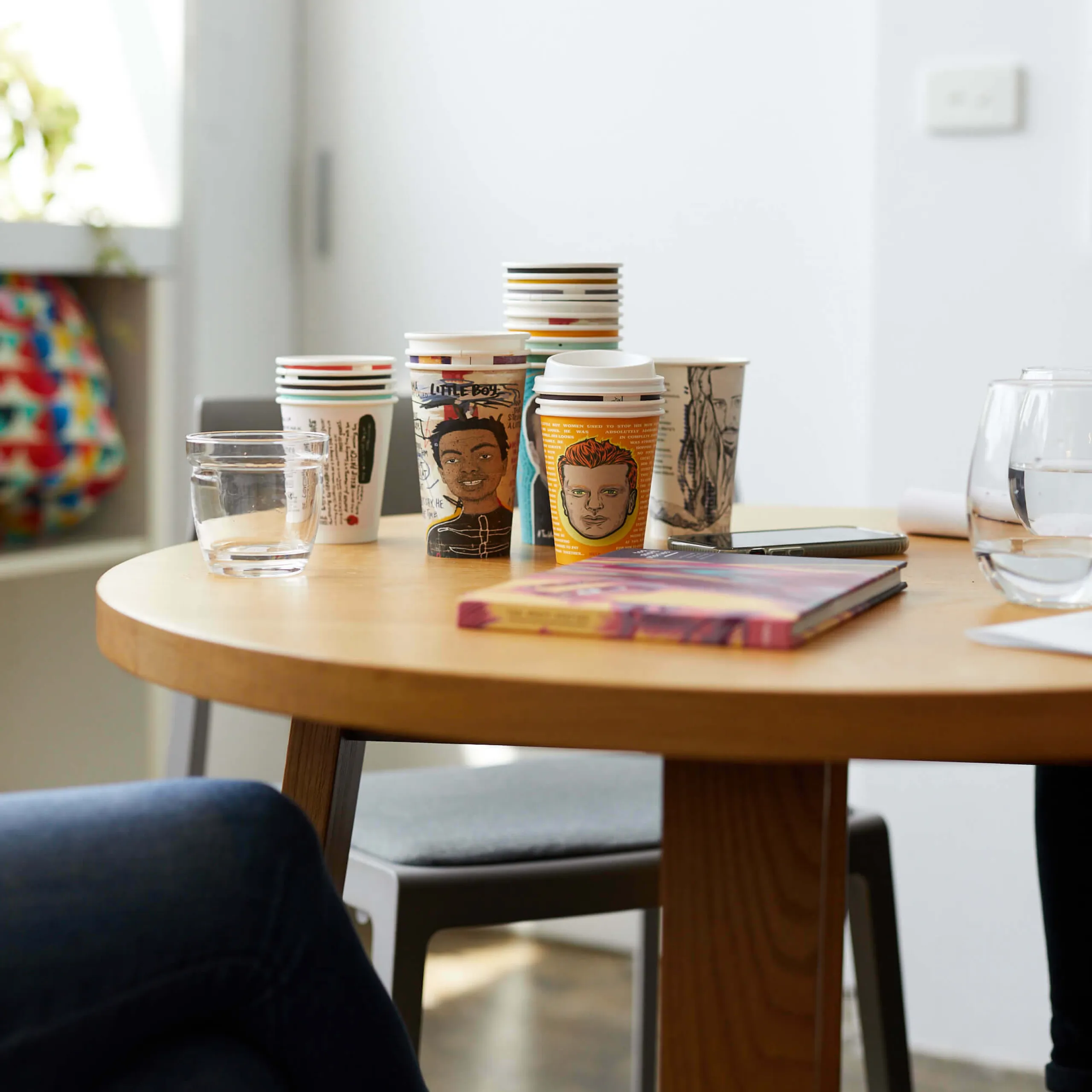
I think for one person, you’ve made a lot of impact. It feels like a tough question to answer, but for people who are wanting to make a difference, do you have any tips or observations about the difference that one person can make?
I think a lot of this has happened because of the fact that it's a very niche realm. I'm not in a crowded space; MPAN is the only organisation in Australia that both creates awareness for the individuals and issue, as well as providing practical and emotional support to families. If you combine that with the fact that I think people are naturally intrigued by missing persons as a topic, there’s room for momentum to gain.
It's a human interest situation. It's always on the news. There's this fascination that we all have with the drama, and the intrigue, fear and the mystery of people simply vanishing. How can that even happen?
I think that has combined with the background to this story; me and my brother were from a very normal, every day, happy family. He was a really wholesome guy. He didn't really fit that stereotype of a missing person. He didn't have a dark background, he wasn't involved with drugs, he never even smoked a cigarette, didn't drink alcohol. He was a very wholesome guy, and very handsome. That obviously helped in terms of getting as far as it did publicly. And that’s not okay; families shouldn’t have to be at the mercy of the media’s superficiality.
I think being really consistent and persistent with your cause is important. Like I said, the last grant I won, I went for three times before I got it. You’ve just got to keep pushing.
Being really open to opportunities and broad with your ideas helps. We’ve had so many different opportunities over the years with a host of different individuals and organisations. Up until now, I’ve been saying yes to everything because I want it to be as broad-ranging as it can.
The issue itself is very broad, every case is very different. There’s people that have dementia who go wandering, teenagers who run away from various situations, hikers who lose their GPS signal, people suffering from mental health conditions, fishermen in treacherous seas; all sorts of people go missing for all sorts of reasons. I think in my space it makes sense to have connections with lots of different people in different spaces.
From the very beginning, we’ve worked to find individuals, like our chair, who is a strategic communications expert and is very well-connected in Australia. Having someone like her from the get-go, mentoring me, has been invaluable. It opens up so many doors. Having a breadth of meaningful relationships from high-calibre people is essential to creating any wide-scale change. Being open and adaptive, and again, persistent and consistent.
Another thing that I would recommend is inviting yourself to things. I have been living outside of my comfort zone from Day 1 of this journey. When I started MPAN, I actually invited myself over to Missing People UK in London. I was there for two weeks.
I asked, “Would it be okay if I came for two weeks and met with your staff, and your Board of Trustees, and your volunteers?” It was in May, their big month of fundraising, and there were a lot of events happening. I just got amongst it because there was no other example to follow at that point. They had been around for about 25 years at that stage. It was really important for me to see an office space, filled with people that were working for this common cause that I was trying to emulate back in Australia.
We're very different organisations. I mean, they're 30 years into this, and we're still relatively new. I think because we don't have that funding, we are a bit more flexible and independent with the types of projects that we can do.
It's encouraging for me to see that they can be such an established organisation. They have royal patrons, celebrity ambassadors like Bob Geldof, Hugh Grant and Stephen Fry. Stephen Fry gets behind an annual big tweet campaign because he went missing himself for a period of time. They are very good at creating a platform for people to say, “Yes, I connect with this. I've had an experience with this.”
We haven't really yet had that yet in Australia, but I'm hoping that in the next couple of years we'll see AFL footballers come forward and say that there was a time in their life that they were directly affected by this issue and I’m going to lend my support to it. It's still a bit underground, but I think we’re getting there. Our illustrated cups were at the MCG, and we've had them in cafes all around Australia. We had a pop-up café in Martin Place in Sydney for Missing Persons Week and all sorts of people come out of the woodwork and share stories of how people in their lives have gone missing.
It's something that a lot of us do have a connection to but we just haven't spoken about it yet. There is a bit of stigma and taboo around it, possibly from the mystery of it all, the potential police involvement or the criminal connotations.
We want to break all of that down and highlight that there is a huge community of people that need all sorts of support, and we can do it. They're doing it in the UK. There's no reason why we can't do it here.
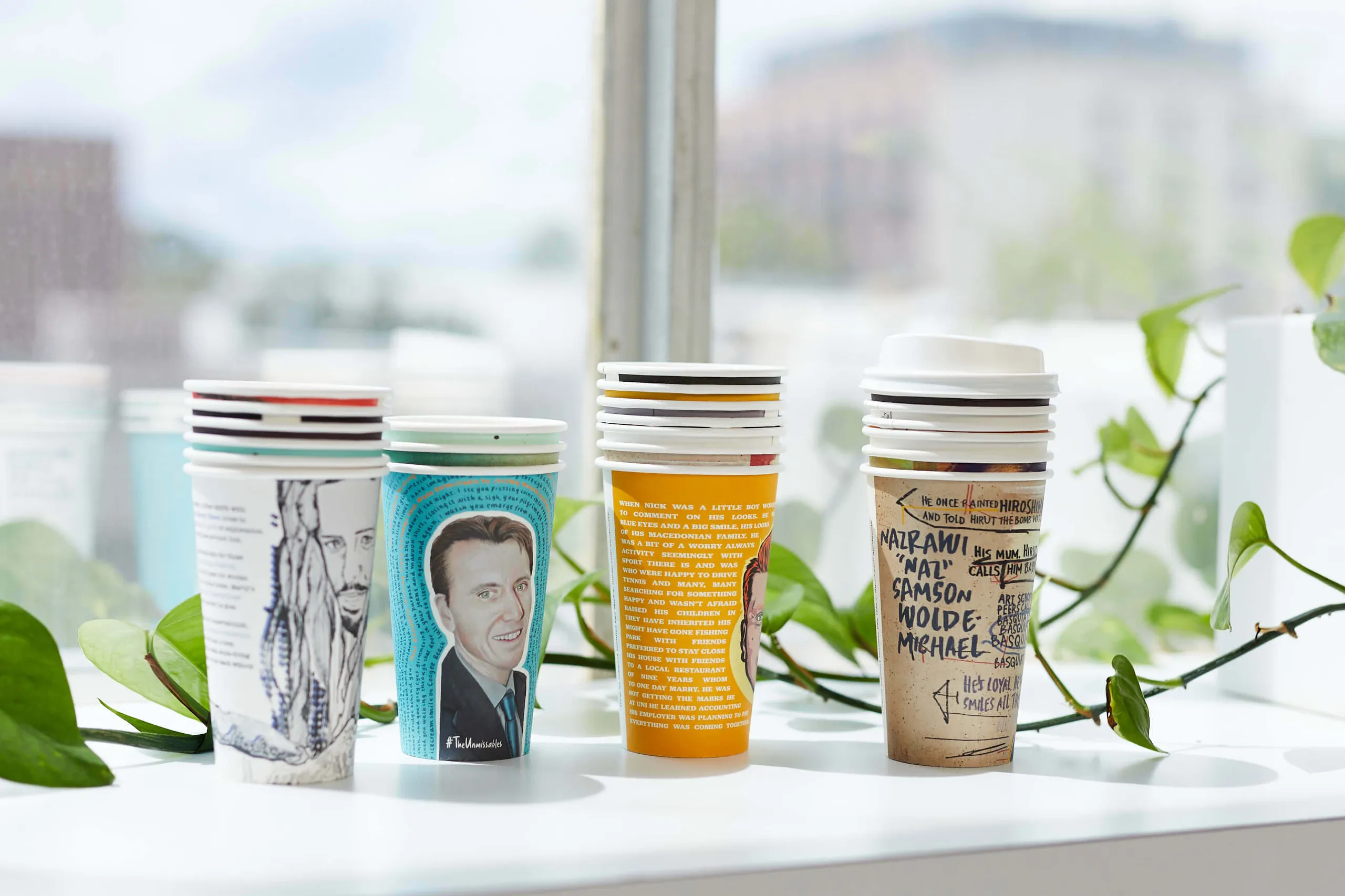
That makes me reflect on how some people only start sharing stories once they've had closure, and once they can say, “Well, that was the start of the story and this is how it ended. And now I can speak about it.” But there's a huge vulnerability in saying, “I'm in the middle. I don't know where it might go.” Which in a way links into what you were saying about the psychological impact of ambiguous loss. It’s inspiring to hear about all the ways you’re working towards normalising these conversations for people. And letting them know that there’s a big network of people who can help them feel comfortable about talking in this space.
We just don't have the language. Humans are not comfortable with uncertainty of any kind, we don't know what to say a lot of the time, even when someone dies. But when someone is missing, how do you broach that? We really don't have the language skills to talk about it easily and there's no widespread awareness of ambiguous loss; which is that unique type of disenfranchised grief that families experience in this situation.
One of the projects we're working on at the moment is an ad campaign, currently on TV, but we're also branching out to radio in the next couple of weeks, called Missed Birthdays. Because the birthday of your missing loved one is the hardest day of the year typically. It's about giving the unaffected public an insight into what it's like to not know and to have to live with that uncertainty day in and day out. And getting ambiguous loss into the Australian lexicon.
We put these really powerful 30 to 90 second long videos out featuring families enduring those especially difficult days, and that’s never been done before. We couldn't find anything anywhere in the world that really represented this side of the story, because people understandably focus on the missing person; trying to get their face out there and trying to find them.
Once the search becomes long-term, it's unlikely that they will ever be found. Therefore, I think there should be far more emphasis on the impact it has on all of the people that are left behind and living with ambiguous loss, which is known to be the most unmanageable type of trauma that we don't really have any awareness for in Australia.
Another project we're working on is training psychologists in the nuances of ambiguous loss and then connecting our families to them, hopefully, in March or April, this year.
I think there should be far more emphasis on the impact it has on all of the people that are left behind and living with ambiguous loss, which is known to be the most unmanageable type of trauma
Loren O'Keefe
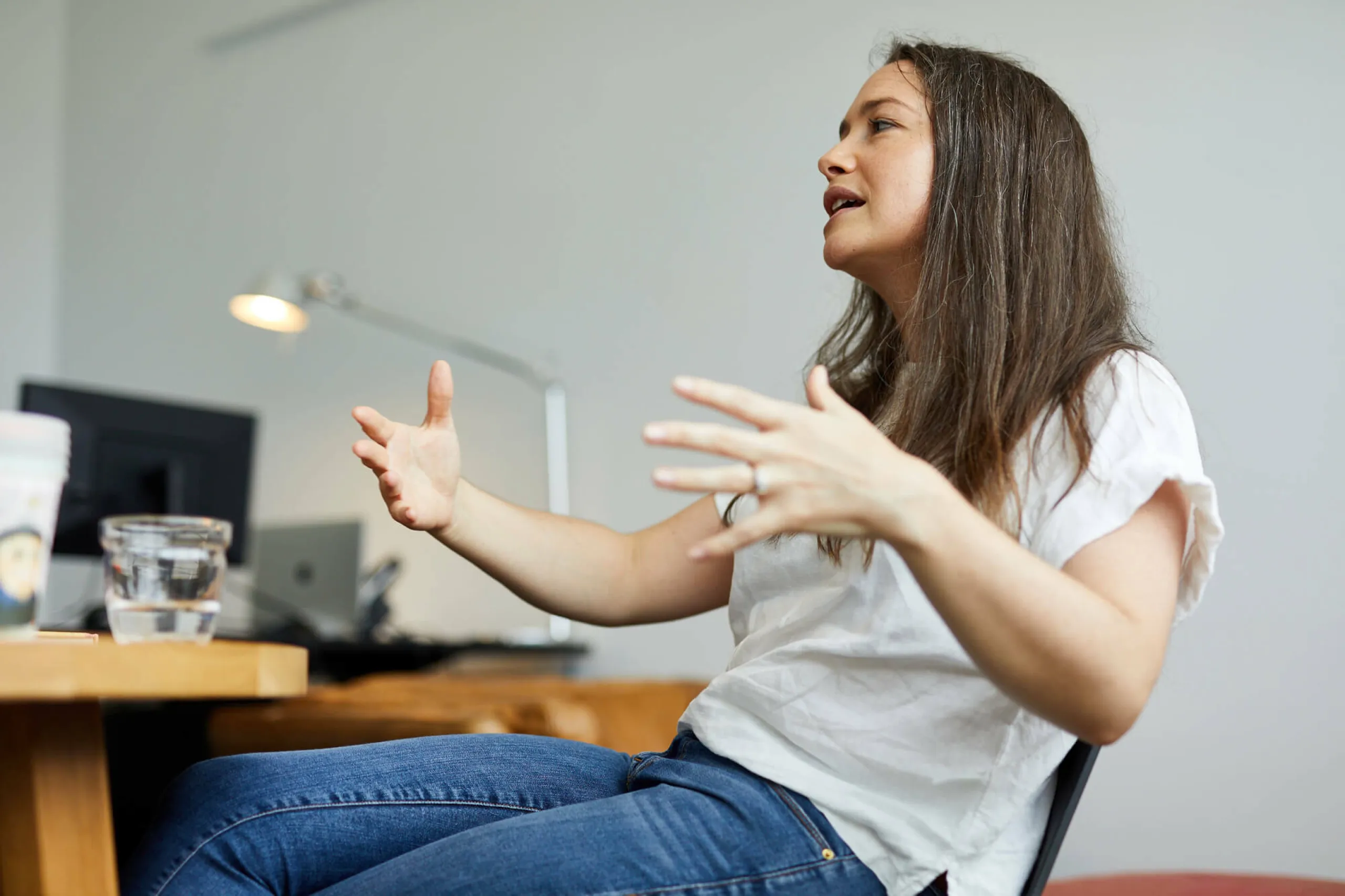
Where do you hope to see MPAN in five years?
Well, I hope we still exist in five years! It's been such a hard slog, and not having funding has made it difficult to plan more than a few months in advance. So I just hope we have funding in five years. I don't tend to get too specific with goals, because five years ago, I never would have dreamt that we would have done half the stuff we've done. It just wasn't even imaginable. It wasn't possible.
We are working on some exciting projects at the moment, really different projects. We’ve got a podcast happening later in the year with a very high-profile podcast network. That reached out last year and offered MPAN its own series. So we’re going to base this first series on our book, Too Short Stories . We're doing episodes with each of the eight families involved, with a few different experts here and there.
Those types of things that come completely out of the blue that I could never have planned for, they seem to keep happening, and it’s great.
We’re also about to embark on a major research piece that aims to measure the cost of missingness in Australia. We need to be able to show the magnitude of the impact on our society, the economy, as well as the cost on the families themselves, to help us in our bid for government funding. So that’s a huge project that I’m really excited about. Sums are powerful things.
So in five years, I just hope that we're doing more of this, but with some help. I am still a one-woman show, with a couple of sporadic volunteers. I'd love to have at least one part-timer by then. Ideally a fundraiser/marketer/community manager package combo. Our pro bono and in-kind supporters have gotten us this far, but the goal is still very much about getting to that point of financial sustainability.
A dedicated podcast is really exciting. I imagine for the families it would be a nice project to be involved in; having another platform to talk about their loved one in more detail will hopefully be therapeutic.
Definitely. It's really distressing to repeatedly see your loved one as a mugshot with just some vital statistics alongside it. They're so much more than that. And that's the basis of the book, and the upcoming podcast; allowing families to have the opportunity to tell the public that their loved one is a great hockey player, or is really kind and sensitive, has a great sense of humour. Opportunities that media—having a 20-second grab on the news bulletin—doesn't allow for.
